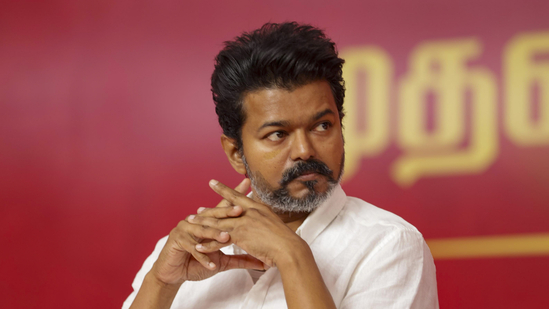Vijay Slams Waqf Bill as ‘Anti-Democratic’, Warns of Legal Struggle Alongside Muslims
Chennai/New Delhi:
Actor and Tamilaga Vettri Kazhagam (TVK) chief Vijay on Thursday strongly condemned the Waqf (Amendment) Bill recently passed in the Lok Sabha, labeling it “anti-democratic” and “divisive.” In a statement reported by PTI, Vijay warned the BJP-led central government to withdraw the bill immediately, failing which TVK would join the Muslim community in their legal struggle for Waqf rights.
Calling the bill a threat to the basic principles of the Indian Constitution and secular democracy, Vijay accused the ruling party of indulging in “anti-Muslim” and “majoritarian” politics. He also questioned whether the bill was intended as a “psychological attack” on Muslims.
“The bill that has been adopted in the lower house of Parliament has once again put a question mark over the dignity of the Constitution and secular Indian democracy’s basic principles,” Vijay said. “TVK urges that the anti-democratic bill be immediately taken back heeding the voice of all democratic forces.”
He emphasized that if the bill is not withdrawn, TVK would not hesitate to “join forces with Muslim brothers” and participate in their legal resistance.
The Waqf (Amendment) Bill, passed in the Lok Sabha after a marathon 12-hour debate on Wednesday, seeks to introduce major changes to the regulation and management of Waqf properties across India. The bill allows for the inclusion of non-Muslims and women in Waqf boards and enhances government authority over the administration of Waqf assets.
Despite opposition from several parties, the bill was passed with 226 MPs voting in favor and 163 against. It has now been tabled in the Rajya Sabha for further discussion.
States like Tamil Nadu, Kerala, and Karnataka have already passed resolutions demanding the withdrawal of the bill. Echoing these voices, the TVK too passed a similar resolution in its recent general council meeting.
As the bill continues to stir political and public discourse, all eyes are now on the Rajya Sabha, where the next phase of debate will determine its legislative fate.

